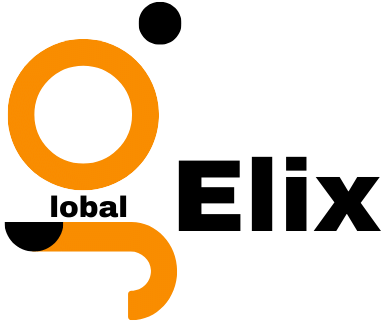In today’s digital world, link building has become essential to any successful online marketing strategy. It’s a process of earning other websites’ links to your site, which drives traffic and increases your search engine rankings. However, building a link is more than just getting any link from any website; it requires a well-thought-out, results-driven strategy tailored to your business’s unique needs and goals.
However, the link building process takes work, especially if you’re new to the game. More importantly, not all approaches will get you the desired results; some can even hurt your website’s search engine rankings. That’s why it’s necessary to understand what works and what doesn’t.
This guide will give you a roadmap for building links, helpful tips, and best practices. It also includes a great list of resources to help you start and improve your link building skills.
Importance Of Link Building
Link building is crucial for search engine optimization (SEO) and digital marketing. It involves acquiring backlinks from other sites, which are links that point to your website from external sources. These backlinks serve as a vote of confidence and authority for your website in the eyes of search engines, indicating that other websites find your content meaningful, valuable, and trustworthy.
Here are some reasons why link building is crucial:
-
Improves Search Engine Rankings
Backlinks are a significant factor in search engine rankings. When search engines crawl the web, they utilize backlinks to determine a website’s authority, relevance, and popularity. Websites with quality backlinks place higher in search engine results pages (SERPs).
-
Increases Website Traffic
Backlinks also serve as a source of referral traffic to your website. When users click on a backlink to your website from another website, they are directed to your site, increasing your overall traffic and potentially leading to conversions.
-
Builds Brand Authority And Credibility
Backlinks from reputable and authoritative websites can improve your brand’s reputation and credibility. When other websites link to your content, they endorse your brand and establish it as a trusted source of information in your niche.
-
Facilitates Networking And Collaboration
Link building involves contacting other websites and building relationships with influencers and thought leaders in your niche. It can lead to networking opportunities and collaborations that benefit your brand in the long run.
-
Supports Content Marketing Efforts
Link building is often an essential component of content marketing. High-quality and link-worthy content can attract backlinks and improve your website’s visibility and reach.
How To Create A Results-Driven Link Building Strategy

There are many reasons why you should create a results-driven link building strategy. Your website depends on it, and so do your business objectives. You can hire the service of a professional like Caffeine Marketing to get you started by:
-
Understanding Your Audience
Understanding your ideal audience is essential to developing a results-driven link building strategy. These include the following:
-
Identifying Your Ideal Audience
Selecting your ideal audience involves identifying the attributes of the people you want to attract to your website. It includes knowing their age, gender, location, interests, and behaviors. By knowing your ideal audience, you can create content and develop a link building strategy that resonates with them and meets their needs.
Conducting audience research also involves gathering information about your ideal audience. It could include analyzing website analytics data, conducting surveys, or using market research tools to collect information on their interests, behaviors, and preferences. Audience research is vital because it helps you better understand your ideal audience and their needs.
-
Developing Buyer Personas
Buyer personas are a composite of your target customer’s characteristics, behaviors, and motivations. They are created based on data collected during audience research and are used to guide content creation and link building strategies. By developing buyer personas, you can curate targeted content that meets the needs of specific segments of your audience and develop a link building plan that targets relevant websites and influencers.
-
Conducting A Competitive Analysis
Conducting a competitive analysis helps you understand what’s working well for your competitors regarding link building, so you can develop a strategy that will help you stay competitive and accomplish your business objectives. Here is a breakdown of what this process entails:
-
Identifying Your Competitors
To analyze your competitor’s backlink profiles, you first need to identify who your competitors are. It could include other businesses in your niche or niche targeting your exact keywords or audience.
-
Analyzing Competitors’ Backlink Profiles
Once you have identified your competitors, you can analyze their backlink profiles. It involves looking at their backlinks’ quantity, quality, and relevance to understand what works well for them regarding link building.
-
Evaluating Competitor Link Quality
In addition to analyzing the quantity and relevance of your competitor’s backlinks, you should also evaluate the quality of these links. High-quality links come from reputable and authoritative websites, while low-quality links may come from spamming or irrelevant sources. By understanding the quality of your competitors’ links, you can determine the links most valuable for your industry and target audience.
-
Creating High-Value Content
Valuable content helps you build a strong brand identity and establish your website as an authority in your niche. The clues are:
-
Creating Content Types That Attract Backlinks
Some sorts of content are more likely to attract backlinks than others. For example, long-form content that provides in-depth information on a particular topic is often highly valuable to readers and, therefore, more likely to be linked. Other contents that often attract backlinks include infographics, blog posts, educational and entertaining videos, interactive content such as quizzes and surveys, etc.
-
Creating Content That Provides Value
When creating content for link building purposes, focusing on providing value to your ideal audience is essential. It means creating content that’s informative, engaging, and relevant to their needs and interests. By providing value, you can attract more backlinks and establish yourself as a trusted source of information in your niche.
-
Promoting Your Content To Increase Visibility
The highest quality content will only attract backlinks if visible to your ideal audience. Therefore, promoting your content through various channels, such as social media, email marketing, and outreach to other websites and influencers in your niche, is essential. By promoting your content, you can increase its visibility and reach and ultimately attract more backlinks to your website.
-
Identifying Link Building Opportunities
There are different ways to identify link building opportunities, but they all share the same goal: to help you find websites that might be interested in linking to yours. The different types of link building come with their strengths and weaknesses. Some common types of link building include:
-
Guest Posting
Guest posts are a link building strategy where you create and publish content on someone else’s website, typically in exchange for a backlink to your website. They’re a great way to build links and earn some exposure. They also help you build relationships with other bloggers and website owners who might be interested in linking to your content.
-
Broken Link Building
Broken link building is where you find broken links on websites, replace them with relevant content, and then contact web admins to inform them about the broken links. It often leads to getting a backlink in exchange for fixing the problem.
-
Resource Link Building
Resource link building is where you create valuable resources and get others to link to them. You can do this in many ways, such as by creating an infographic, video, or ebook. You could even write a blog post that’s so helpful that other people want to link back to it.
-
Influencer Outreach
It’s a link building where you reach out to influencers in your niche, connect with them, and ask them if they’re willing to disseminate your content. You can also get an influencer to write an article or post about your company, which will get them talking about you.
Understanding the different link building types is essential to choose the most effective for your business and target audience.
-
Measuring and Tracking Results
Once you publish your content, it’s crucial to measure its performance. You can do this by:
-
Setting Goals And KPIs For Your Link Building Efforts
Defining what you want to achieve and how you will measure success is essential. Setting specific, measurable, and realistic goals will help you track progress and adjust your strategy if needed. Key performance indicators (KPIs) you can track include website traffic, referral traffic, keyword rankings, and the number of backlinks acquired.
-
Measuring The Success Of Your Backlink Profile
Tracking your backlink profile can help you understand your existing backlinks’ quality, quantity, and relevance. You can use tools like Ahrefs, Moz, or SEMrush to monitor your backlinks and analyze their authority, trustworthiness, and other metrics. This information can help you understand areas to improve and adjust your link building strategy accordingly.
-
Analyzing Traffic And Conversion Rates From Referral Traffic
Referral traffic is the traffic that comes to your website from other sites that link to you. This traffic can be an essential source of new visitors and potential customers. Analyzing referral traffic can help you understand which backlinks generate the most traffic and which leads to conversions. You can use tools like Google Analytics to track referral traffic and analyze the behavior of these visitors on your website.
Conclusion
Link building is just one of the many elements of a successful SEO strategy. While it can help you rank higher in search engines, other things matter. It’d be best to focus on creating quality content, monitoring your website’s performance, and improving your user experience. Understanding the different types of links and how they can benefit your business is essential to build a successful link.
 Global Elix
Global Elix 
